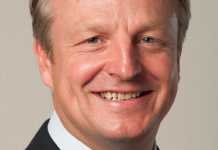The main challenges for PDO can be broadly classified into three categories.
First and foremost is to “Stay the Course.” This means that PDO needs to keep generating value whilst it continuously improves its operations, ensuring that it makes the best return on investment. For the technical area, this focuses on three strategic priorities, where the leadership directly interacts at a working level to drive value improvement taking the “practical reality on the ground” fully into account. This involves:
• Asset Integrity and Process Safety to ensure that our assets are safe to operate, at all times. Some of PDO’s assets date back to the 1960s, and additionally produced fluids have become more corrosive over time. From this perspective, maintaining Process Safety is a significant challenge. The activity is of vital importance for personal safety and a pre-condition of delivering value.
• “Sweating our Assets” which refers to the necessity of making the most of all of our existing assets (reservoirs, wells, facilities). This initiative drives value in a fully integrated manner and prioritises activities on a short, medium and long-term basis.
• “Delivering new projects/assets as intended” which is crucial to ensuring that new investments return value as planned. The management of change and alignment with operations are important, not only to deliver projects safely, on time and within budget, but to deliver the value as intended.
The second main challenge is supporting Oman’s development. This is not only through cash generation, but through active stimulation of alternative local solutions. This includes social investment and our National Objectives programme, which covers job creation and vocational training of Omanis to international standards. PDO has initiated a national initiative to embed “In-Country Value” in contracts to ensure more of the wealth of the oil and gas industry is retained in Oman.
This involves levelling the playing field in a transparent manner between local and international competition. A more recent focus is on the stimulation of renewable energy and contractor staff redeployment (absorbing the impact of redundancies due to changes in the business environment).
Last but not the least is, naturally, PDO has had to act strongly and decisively in response to the low oil price environment, which became a reality in the second half of 2014. So far, we have managed to minimise long-term value loss.
DESPITE THE CURRENT LOW OIL PRICE ENVIRONMENT, HOW IS PDO MANAGING TO MAINTAIN ITS FOCUS ON SUSTAINABILITY AND INITIATIVES IN SUPPORT OF OMAN’S DEVELOPMENT?
Although oil prices have been low for over two years now, our activities continue to be economically attractive in their own right. Sustainability is a key driver at PDO and despite the challenges presented by the global economy in the short to medium-term, we will not be distracted from this focus in the way that we manage the business. This is crucial to understanding the Company because we are here to serve Oman and deliver value to all our stakeholders.
I have already mentioned a number of initiatives, but I’d like to go into a little more detail on renewable energy. The Sultanate has finite resources and, just like our neighbours, Oman is in a prolonged phase of development, and we need to keep delivering revenue for the nation so that it can continue on its path of sustainable prosperity and stability.
However, we also need to be constantly aware of the need to be stewards of the environment and energy management as well as champions of sustainable development. For example, gas has an important role to play in powering Oman, with demand increasing as the population grows. The oil business, on the other hand, will become more energy intensive, mainly due to two factors. Firstly, we progressively produce more water (currently for every barrel of oil we produce, six barrels of water come with it) and water management is energy intensive. Secondly, enhanced oil recovery (EOR) will become an ever more important pillar of our production portfolio as the oil becomes more difficult to extract from our aging fields and the Sultanate’s complex geological subsurface. The challenge is that thermal EOR methods require significant quantities of gas to generate steam. In short, at some point, we could either face a gas shortage or, at the very least, gas prices will rise.






[…] “Committed to excellence and delivering outstanding quality in all aspects, Burjeel Hospital is known to provide advanced medical and healthcare services in Oman since inception, and has consistently worked towards revolutionizing hospital services and facilities,” averred Dr. Raghavan of Burjeel Hospital. […]